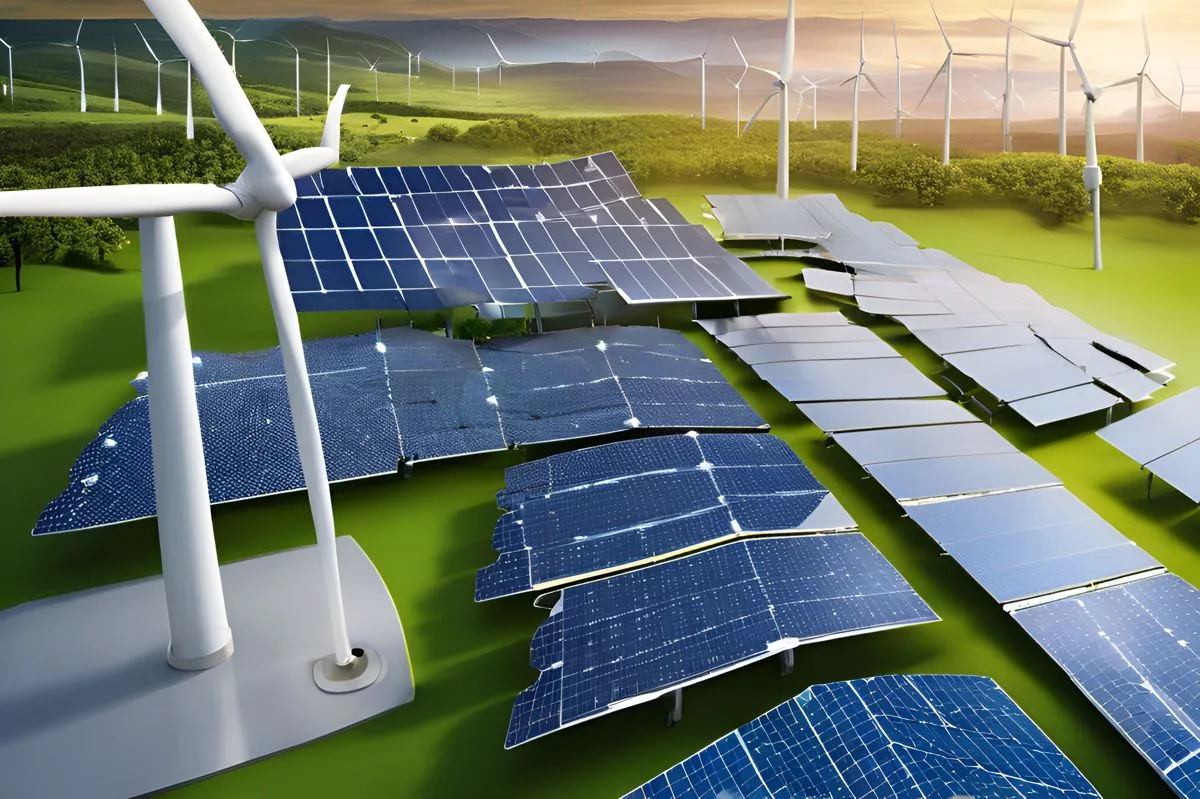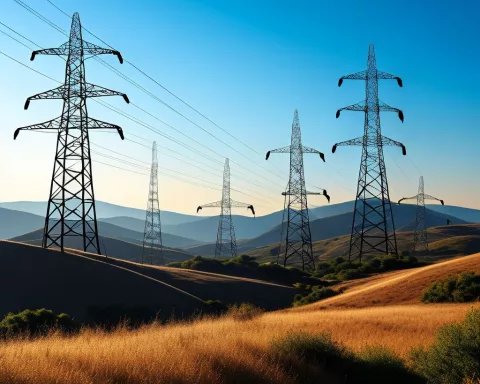At the 9th BRICS Energy Ministerial Meeting in Moscow, leaders focused on coming together for a brighter energy future. South Africa’s Dr. Kgosientsho Ramokgopa emphasized the need for unity and the importance of using a variety of energy sources to support growth and sustainability. He highlighted that expanding BRICS membership could help tackle energy poverty and promote fair energy transitions. With a shared vision and collaborative spirit, BRICS nations are poised to make significant strides in shaping global energy policies.
What were the key insights from the 9th BRICS Energy Ministerial Meeting?
The 9th BRICS Energy Ministerial Meeting, led by South Africa’s Dr. Kgosientsho Ramokgopa, emphasized unity and energy transition. Key insights include expanding BRICS membership, advocating for energy access and security, leveraging diverse energy resources, and prioritizing collaboration among member nations for a sustainable future.
A Historic Gathering
The 9th BRICS Energy Ministerial Meeting in Moscow became a landmark event in the ever-evolving narrative of global energy policy. The gathering saw notable addresses, including one by Dr. Kgosientsho Ramokgopa, South Africa’s Minister of Energy and Electricity. His speech poignantly echoed the aspirations not only of his own nation but also of the collective BRICS community. Dr. Ramokgopa’s address was imbued with themes of unity, progress, and transformation, highlighting the need to balance developmental objectives with energy transition strategies.
Dr. Ramokgopa initiated his speech by expressing appreciation to the Russian government and the Chair of the meeting, Minister Sergie Tsivilev. This gesture of respect set a tone of camaraderie and mutual respect, foundational for the productive discussions that followed. He acknowledged the warm reception the South African delegation received in Moscow, emphasizing the hospitality that fostered an environment conducive to meaningful dialogue.
Expanding Influence and Vision
Dr. Ramokgopa emphasized the significance of the expansion of BRICS membership, viewing it as a testament to the group’s increasing influence in the global energy sector. This enlargement presented a unique chance for BRICS nations to rethink and reshape the global energy framework. With a concerted focus on ensuring energy access, security, and affordability, the expanded BRICS aimed to eradicate energy poverty and advocate for a just energy transition. This vision aligned seamlessly with global movements towards sustainability and environmental stewardship.
South Africa perceived this era as an opportunity to voice a collective stance as developing nations. Dr. Ramokgopa emphasized the role of innovative technologies in facilitating a shift from high-emission to low-emission energy systems. The objective was to achieve carbon neutrality at a pace and scale suitable to each country’s unique circumstances and capabilities. His address underscored the necessity of maintaining energy security to support socio-economic growth—a pivotal consideration for developing nations seeking to balance growth with sustainability.
Harnessing Potential and Collaboration
Dr. Ramokgopa highlighted the immense potential within BRICS countries to harness various energy resources. He pointed out opportunities in the mining and beneficiation of critical minerals and rare-earth elements, essential for powering the green economy. Additionally, he discussed the potential of diverse energy sources, including hydro power, promising hydrogen solutions, gas, nuclear energy (notably small modular reactors), renewables, storage, biofuels, and clean coal technologies. This array of energy resources underscored the BRICS nations’ commitment to an inclusive and multifaceted approach to energy transition.
The Minister stressed the importance of cooperation and mutual support among BRICS members. He encouraged member countries to leverage their individual strengths and capabilities, emphasizing the necessity of collective efforts to tackle shared challenges. Identified during the BRICS 2023 Summit in South Africa, these challenges included the absence of an integrated energy policy framework, diversification and beneficiation of critical minerals, infrastructure development, technology transfer, and intellectual property issues. He also highlighted the importance of enhancing energy efficiency, mobilizing finance and investment, and building skills and capacity.
Strategic Timing and Historical Context
The timing of the BRICS Energy Ministerial Meeting was notable. It coincided with Brazil’s hosting of the G20 meetings and would be followed by South Africa’s hosting of the G20 in 2025. This overlap of major international events offered a platform for BRICS nations to advocate a unified perspective as developing countries. It was an opportunity to influence global dialogues on energy and sustainability, ensuring that the voices of developing nations were acknowledged and their needs addressed.
Dr. Ramokgopa interwove his speech with historical and artistic references, adding depth to his narrative. His call for a just energy transition echoed the principles of the Just Transition movement, advocating for a fair and inclusive shift towards a sustainable economy. This movement has historical roots in labor and environmental justice struggles, emphasizing the need to protect vulnerable communities during periods of economic change.
Historical Parallels and Future Prospects
Dr. Ramokgopa’s vision for energy transition resonated with the principles of the Arts and Crafts movement, which emerged in the late 19th century as a reaction against industrialization. Similar to the proponents of this movement who aimed to preserve traditional craftsmanship and promote social reform, Dr. Ramokgopa emphasized the need to harness modern technologies while ensuring inclusivity. His call for a people-centered energy transition reflected the ethos of this historical movement, underscoring the importance of balancing progress with social equity.
The Minister also drew parallels with the Renaissance, a period of profound transformation and renewal in European history. Just as the Renaissance was characterized by a flourishing of knowledge, innovation, and cultural exchange, the BRICS nations stood on the brink of a new era of energy transformation. Dr. Ramokgopa’s emphasis on collaboration, innovation, and mutual support mirrored the spirit of the Renaissance, suggesting that the BRICS nations could drive a similar period of growth and renewal in the global energy landscape.
In his closing remarks, Dr. Ramokgopa conveyed his best wishes for a successful Energy Ministerial meeting under the BRICS presidency and reiterated South Africa’s support and commitment to the outcomes. He also extended well-wishes to the Brazilian government on the eve of the G20 Energy Transition Working Group and Ministerial meetings. His concluding words reflected optimism and anticipation for the future discussions, emphasizing the importance of collective action and shared vision.
Dr. Ramokgopa’s address at the 9th BRICS Energy Ministerial Meeting was a profound articulation of the ambitions and challenges facing the BRICS nations. His narrative, enriched with historical and artistic analogies, provided a compelling vision for a just and inclusive energy transition. As the BRICS nations navigate the complexities of the global energy landscape, Dr. Ramokgopa’s words serve as a powerful reminder of the importance of collaboration, innovation, and shared purpose in shaping a sustainable future.
FAQ: Insights from the 9th BRICS Energy Ministerial Meeting
What were the key insights from the 9th BRICS Energy Ministerial Meeting?
The 9th BRICS Energy Ministerial Meeting highlighted the importance of unity and energy transition among member nations. Key insights included expanding BRICS membership, advocating for energy access and security, leveraging diverse energy resources, and prioritizing collaboration for a sustainable future.
Who was the leading figure at the meeting and what did they emphasize?
The meeting was led by South Africa’s Dr. Kgosientsho Ramokgopa, who emphasized the need for unity and the balance between developmental objectives and energy transition strategies. He underscored the importance of innovative technologies in achieving carbon neutrality and maintaining energy security to support socio-economic growth.
How does expanding BRICS membership contribute to global energy policy?
Expanding BRICS membership is seen as a way to enhance the group’s influence in the global energy sector. It opens opportunities for collaboration to address energy poverty and advocate for just energy transitions, aligning with global sustainability movements and ensuring energy access and affordability for developing nations.
What diverse energy resources were discussed during the meeting?
The meeting highlighted a variety of energy sources, including hydro power, hydrogen solutions, gas, nuclear energy (particularly small modular reactors), renewables, biofuels, and clean coal technologies. This diverse approach reflects BRICS nations’ commitment to an inclusive energy transition strategy.
Why is cooperation among BRICS members crucial, according to Dr. Ramokgopa?
Dr. Ramokgopa stressed the importance of cooperation and mutual support among BRICS members to tackle shared challenges effectively. This includes enhancing energy efficiency, mobilizing finance and investment, and addressing issues related to technology transfer and infrastructure development.
How does the meeting relate to larger international contexts, such as the G20?
The timing of the BRICS Energy Ministerial Meeting coincided with Brazil’s hosting of the G20 meetings, providing a strategic platform for BRICS nations to promote a unified perspective as developing countries. This overlap allows BRICS to influence global dialogues on energy and sustainability, ensuring their voices are heard in broader international discussions.












